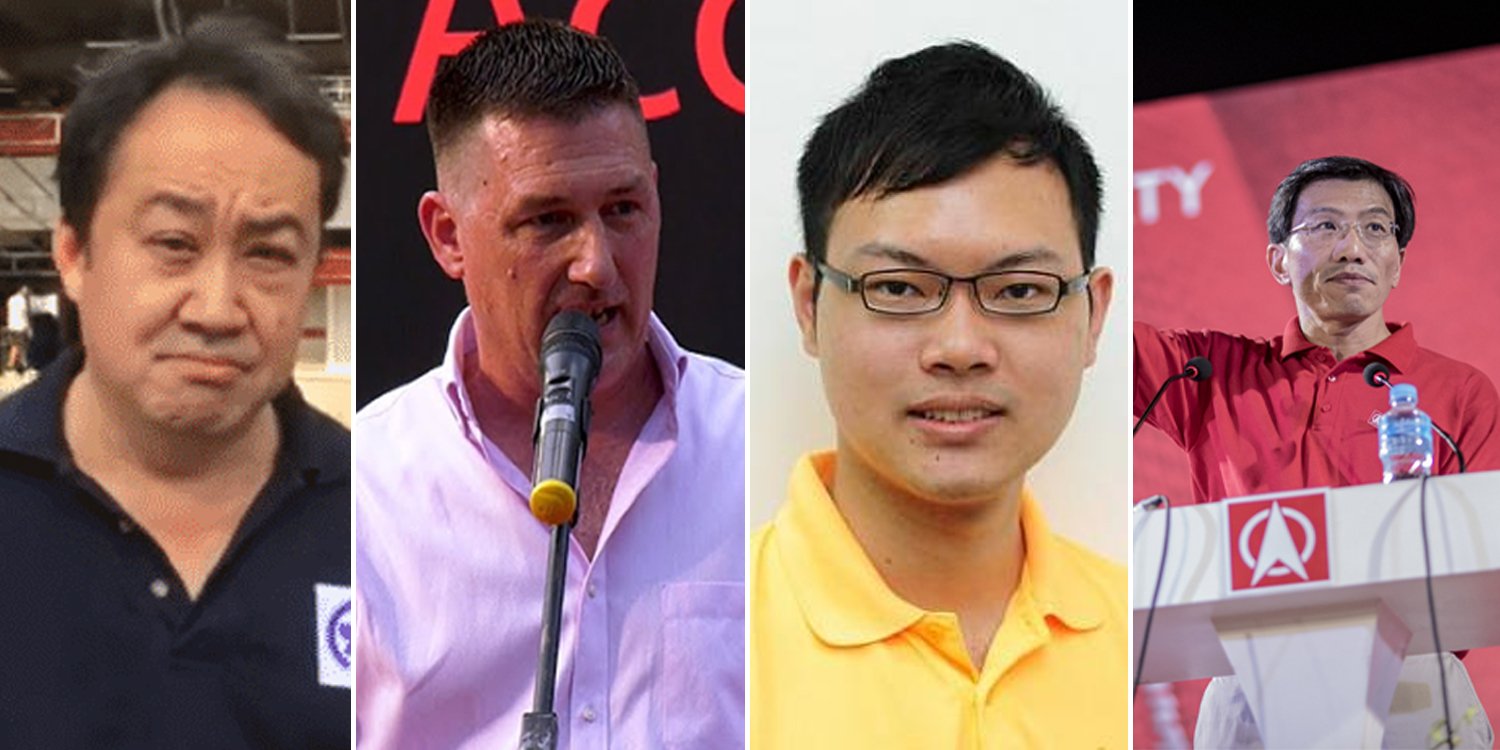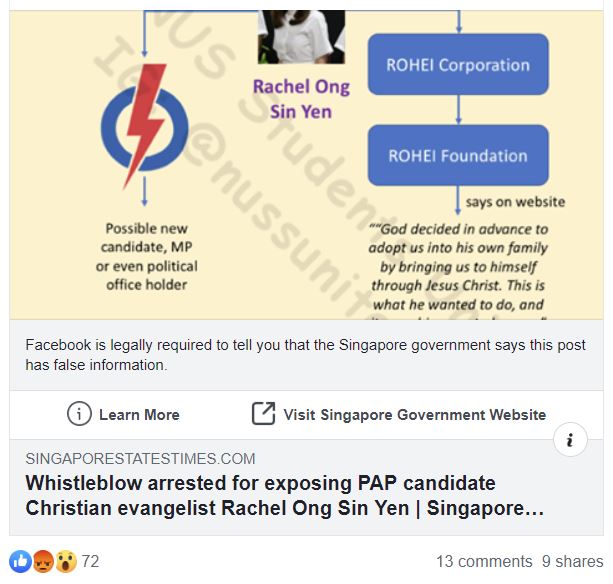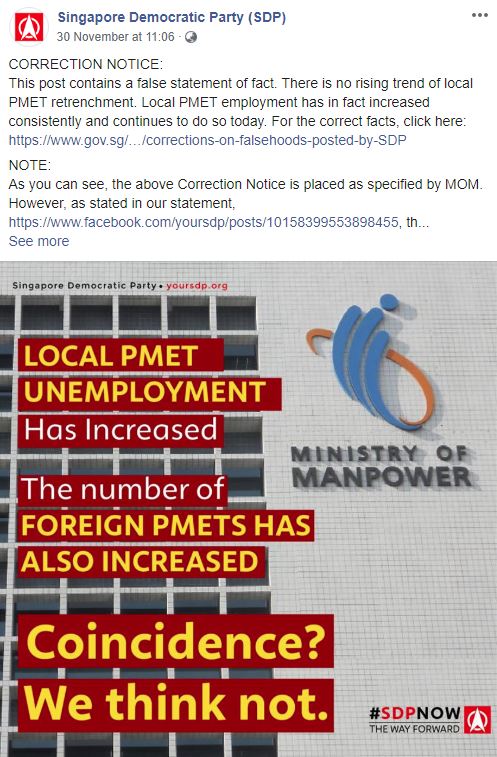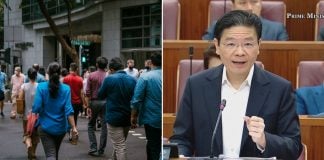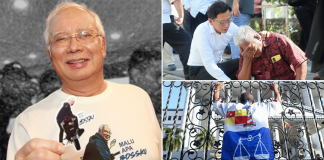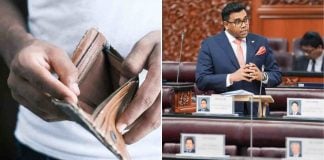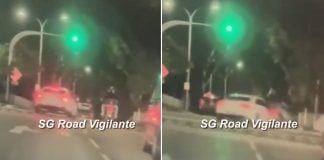POFMA Used On Lim Tean, SDP, States Times Review & Brad Bowyer
When there was talk about introducing a fake news law in Singapore, known formally as the Protection from Online Falsehoods & Manipulation Act (POFMA), there was concern. Singaporeans worried that the law would restrict their freedom of expression.
Law and Home Affairs minister Mr Shanmugam quickly addressed the major concerns, assuring Singaporeans that the law will have no such ‘chilling effect’ on free speech.
Two months later, the worries seem to have dissipated. That is, except in a few smaller political circles. Below are the 4 times POFMA has been exercised since its inception on 2 Oct, starting from the most recent.
Lim Tean’s false & misleading claims about education spending
The latest person to be served a directive by the POFMA office on 16 Dec is opposition politician Lim Tean.
He had insinuated that the government spends less on Singaporean students than on foreign students, saying the “total pot available to Singaporean students [is] $167 million compared to the $238 million that is spent on foreign students.”
The numbers, however, are not true, said the government. MOE’s annual budget is $13B, of which only $238M (roughly 2%) is spent on foreign students. In other words, a lot more is spent on Singaporean students. This was indeed reiterated in Aug 2019 by MP Leon Perera in parliament, which you can view here.
Lim Tean also compared MOE’s spending on bursaries for tertiary students ($167M) to the total spending on foreign students ($238M). By any standard, that is an unfair and misleading comparison.
SDP’s false claims about local employment numbers
The Singapore Democratic Party (SDP) was served a similar directive just 2 days earlier on 14 Dec.
The party had uploaded to its Facebook page an illustration showing a falling local PMET (professionals, managers, executives and technicians) employment and a rising foreign one in Singapore.
Refuting this, the government cited figures from the Comprehensive Labour Force Survey conducted by the Ministry of Manpower. Local PMET employment has in fact been rising since 2015, from 1.17 million to 1.3 million this year.
SDP also claimed that local PMET retrenchment has been rising. Again, this was proven false by the government — local PMET retrenchment was the lowest in 2018 since 2014. You may view MOM’s full labour report here.
SDP is, however, contesting the correction order. You can view their response to Minister Josephine Teo here.
To support their claim that there’s a “rising proportion of local PMET’s getting retrenched”, SDP cites a Straits Times (ST) article — specifically, a line from it that reads, “PMETs make up a growing share of locals laid off.”
SDP also attempts to support their other claim that “local PMET unemployment has increased”, citing figures from a Yahoo article.
States Times Review’s false claims about ‘whistleblower’ being arrested
Alternative (or rather, anti-establishment) news outlet the States Times Review is no stranger to government warnings, notices and fines.
On 23 Nov, the outlet wrote about a mysterious ‘whistle-blower’ who was arrested after attempting to ‘expose’ a PAP candidate’s religious affiliations. The editor, Mr Alex Tan, had apparently gotten the information from Facebook page NUSSU – NUS Students United, which has since been shut down by Facebook.
The government clarified that no such person has been arrested or charged.
Mr Tan, however, had refused to comply with the correction order, saying that he was an Australian citizen and need not listen to a ‘foreign’ government i.e. the Singapore government.
The Singapore government thus had to resort to instructing Facebook, under the part 4 directions* of POFMA, to publish a correction notice on Mr Tan’s post.
*Direction to Internet Intermediaries and Providers of Mass Media Services
Brad Bowyer’s false claims about poor ‘government’ investments
Progress Singapore Party (PSP) member Brad Bowyer was the first to receive a directive from the POFMA office.
On 13 Nov, Mr Bowyer made a series of claims on Facebook about the government’s supposedly ‘poor’ investment decisions. In summary, he alleged,
- Singapore government controls Temasek’s and GIC’s commercial decisions.
- The government clarified that it does not interfere with their commercial and investment decisions. Both are run independent of the government.
- $4B was “dumped” into the canned Amaravati city project in India by government-linked companies in Singapore.
- Firstly, the government explains, the $4B refers to a larger investment in Indian state Andhra Pradesh. The Amaravati city project forms only a small part of it. Canning of the project caused losses limited to a few million dollars and not affect other investment plan, said MP S Iswaran.
- Secondly, many non-government-related companies have also invested in the Indian state. One example is Indus Coffee Pte Ltd, which is planning to set up a coffee powder manufacturing plant in Andhra Pradesh.
- Temasek invested in debt-ridden company Salt Bae.
- The government makes clear that Temasek did not invest in the debt-ridden company, Salt Bae, Mr Bowyer referred to. They did however invest in the company of which the debt-ridden company is a shareholder.v
Mr Bowyer received the correction order relatively well. He amended the original post based on what the government clarified and wrote another explaining that he is willing to do so if it serves the public’s interest. You can read his post here.
Correction orders served as quickly as within 4 days
One of the main purposes of POFMA is so that the government can act quickly to snub potentially false and pernicious information before it goes viral and misleads a large number of people.
In Lim Tean’s case, the correction order was issued just 4 days after he wrote about MOE’s education spending on Facebook. For States Times Review, it was 5 days. But for Mr Bowyer and SDP, the orders took a while longer — 12 and 14 days respectively.
In most of the cases, the parties involved acquiesced to the order and put up a correction notice on their Facebook post. After all, failing to do so will incur a hefty fine (up to $40,000 for individuals and $500,000 for companies). It looks something like this.
Of course, the parties involved can contest the correction order. They can attempt to find evidence to support their statements. And in some cases, they can even vilify POFMA.
But POFMA isn’t outright suppression; it’s education. In all the instances which it has been used, the POFMA office has only issued correction orders. That means the targeted post is not being censored. It can still be kept up — only it has to have a correction notice, sort of like your teacher’s note of what you could have done better in an essay.
This way, we still have access to the post. We can read the post and be guided to see which parts of it are erroneous. We may even learn to pick out the ways information is commonly spun to mislead us into believing things that are untrue. The importance of a discerning eye in an age of easy accusations and convincing half-truths cannot be understated.
Featured images adapted from IPS Common, TOC, YouTube, Coconuts.
